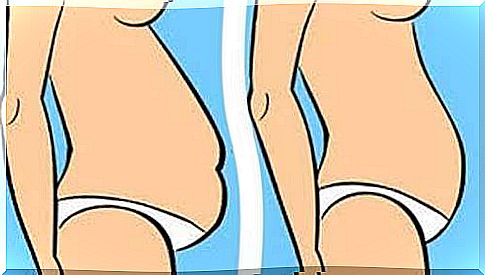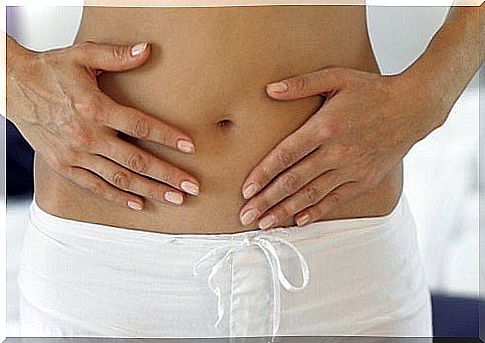What Kind Of Belly Do You Have And How Do You Reduce It?

All bodies are completely different, especially if we talk about the belly of each one. Although we can all agree on the fact that we have a certain degree of fat located in the belly, it is certain that each one has a different type of belly and needs to act in different ways in order to reduce it.
This type of belly tends to be that of those people who maintain a sedentary lifestyle. It is very common in people who work in offices or who, for some reason, remain seated for a long time.
Bad habits: people with this type of belly tend to practice little or no physical activity, consume foods rich in sugar, large amounts of white flour and excess calories. In addition to having more belly, you will probably also notice an increase in weight in your legs and hips.
Advice to reduce it
- First, reduce the consumption of refined foods rich in sugar , such as stuffed biscuits, sweets, breads, fast food , potatoes, sauces and condiments, soft drinks, among others. Instead, you should increase your consumption of fruits and vegetables, fish, cereals, oilseeds and natural drinks.
- If you tend to consume alcohol, it’s worth excluding it from your diet right away. Alcohol is a bomb of fat for the belly and its excessive consumption is also one of the causes of its increase.
- Avoid choosing “low-fat” or “light” foods, as they may seem harmless but are loaded with chemicals, refined sugar, salt and preservatives for flavor.
- Stop counting calories and focus more on nourishing your body.
- Remember that exercise is the key to reducing this type of belly. Get a good cardio workout and complement it with squats, strides and sit-ups.

The stressed type abdomen is usually very common in people who are extremely responsible and perfectionists. In general, people with this type of belly can also suffer from irritable bowel syndrome, which can cause bloating and make the belly look much bigger than it really is.
Bad habits: These people tend to skip meals, often consume a lot of fast food, and abuse caffeinated beverages.
Advice to reduce it
- Improve your sleep habits and try to avoid insomnia. People who sleep poorly stop producing leptin, the hormone that helps regulate appetite and metabolism.
- Fight stress with relaxation techniques, activities that generate pleasure and long, hot baths.
- Avoid drinking coffee and other caffeinated beverages.
- Exercise frequently, but don’t overuse cardiovascular exercise. Do yoga, walking, and resistance training with weights.
- It is advisable to consume foods rich in magnesium, such as green vegetables, nuts and seeds.
This type of belly is usually common in women who have recently given birth and who, being exclusively mothers, do not have time to themselves. It takes at least six weeks to regain normal size, so don’t try to go overboard to achieve this in less time.
Bad habits: get back to exercise immediately, get stressed from not regaining your normal weight, neglect your diet after giving birth.
Advice to reduce it
- Consume fish supplements or omega 3 fatty acids.
- Consume foods rich in fatty acids such as walnuts, avocados, olives and chia seeds.
- Do pelvic floor exercises to straighten your abdomen from the inside out. Squeeze and release your pelvic floor muscles 15 to 20 times over five sessions a day.

Swollen bellies are usually straight in the morning when we first wake up, but during the day they become inflamed with gas or indigestion. Strain can affect both thin and overweight women; this problem, most of the time, is due to food intolerances, allergies or poor digestion.
Bad habits: consuming certain foods despite noticing that they cause intolerance. Do not chew food well.
Advice to reduce it
- The most common food intolerances are wheat and gluten (bread, pasta, sweets, pizzas, pies and cereals), alcohol, yeast (beers and sweets) and processed dairy products (cheese, milk, yogurt, butter). It is important to find out which of these foods can cause the intolerance so that we can exclude them from the diet.
- Improve your eating habits for better digestion. If you have been suffering from constipation lately, it is likely that you are consuming foods that are inappropriate for your body. Increase your intake of fiber-rich foods and drink more water.
- Swelling can also indicate an imbalance in the intestinal flora. To restore it, it is recommended to consume more foods rich in probiotics.









